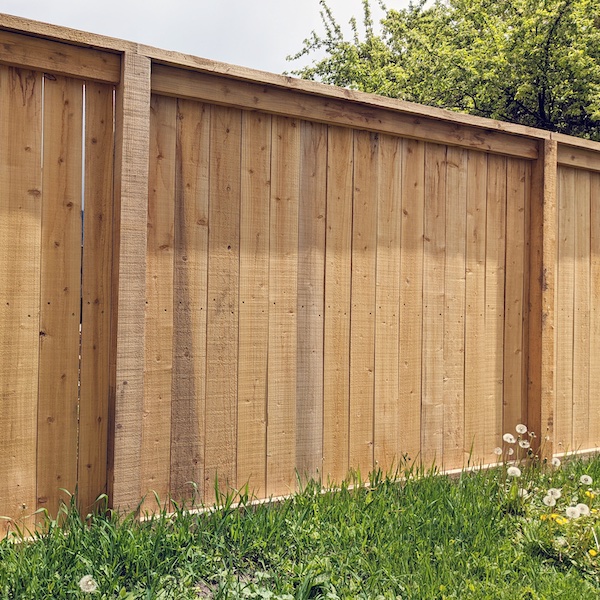All Categories
Featured
Choosing the best fencing for a property situated in an area prone to severe weather condition problems is crucial for keeping functionality, durability, and safety and security. Whether your region experiences high winds, hefty snowfall, intense heat, or downpours, certain fencing products and layouts are much better geared up to endure the aspects. Here's an overview to the ideal secure fencing options for buildings in challenging climates.
Fence Options for Windy Areas.
Secure Fencing Options for Wet or Humid Climates.
![]()
Fencing Options for Cold and Snowy Climates.
Fencing Options for Hot and Arid Climates.
![]()
Layout and Installation Tips for Extreme Weather. Safeguard Structures: Correctly securing fencing posts in concrete can boost stability during tornados or hefty snowfall. Go With Open Styles: In windy areas, choose fencings with voids or slats to enable air to travel through, minimizing pressure on the structure. Usage Weather-Resistant Coatings: Safety coverings can secure fencings from rust, fading, or moisture damage, extending their life expectancy. Get In Touch With Professionals: Work with seasoned fencing service providers who understand local climate challenges and can recommend the ideal products and styles. Conclusion. Extreme weather conditions demand fence remedies that focus on resilience and strength. Whether you're battling high winds, hefty snowfall, extreme warmth, or too much dampness, materials like plastic, composite, light weight aluminum, and treated wood provide reputable protection. By choosing the ideal fencing and making sure appropriate installation, you can safeguard your residential or commercial property while enhancing its aesthetic appeal.
Fence Options for Windy Areas.
- Vinyl Fencings. Plastic fencing is flexible and highly long lasting, making it an outstanding choice for locations prone to strong winds. Its capacity to bend somewhat without damaging aids it sustain high-pressure gusts. Go with designs with broader gaps, such as picket or shadowbox styles, to reduce wind resistance.
- Metal Fences (Aluminum or Steel) Metal fences are strong and can deal with heavy winds, especially when spaced appropriately. Light weight aluminum is light-weight and rust-resistant, while steel supplies added resilience for extreme conditions.
- Chain-Link Fences. Chain-link secure fencing enables wind to go through, decreasing resistance and stress. This cost-effective alternative is perfect for windy areas and needs marginal upkeep.
Secure Fencing Options for Wet or Humid Climates.
- Plastic Fences. Vinyl is invulnerable to dampness, making it an ideal option for areas with hefty rains or high moisture. It won't warp, rot, or draw in mold and mildew, making sure durability with minimal upkeep.
- Composite Fences. Compound materials incorporate timber fibers and plastic, offering exceptional resistance to dampness and rot. They resemble the look of wood while providing superior durability in wet problems.

- Pressure-Treated Wood. For those who like an all-natural appearance, pressure-treated timber is made to stand up to water damage, decay, and insect invasions. It needs normal sealing to preserve its integrity.
Fencing Options for Cold and Snowy Climates.
- Wrought Iron Fencings. Wrought iron fencings are sturdy and can sustain hefty snow tons without damaging or bending. They need a safety finishing to protect against corrosion in regions with snow and ice.
- Vinyl Fencings. Vinyl continues to be resistant and adaptable to fracturing in freezing temperature levels. Its non-porous surface area additionally prevents ice buildup, making it a superb alternative for cold climates.
- Concrete or Stone Fences. These products are extremely long lasting and can hold up against the weight of snow and ice. They call for specialist installation but offer unmatched durability in extreme cold.
Fencing Options for Hot and Arid Climates.
- Vinyl Fences. Vinyl is UV-resistant and doesn't fade, warp, or crack under intense heat, making it one of the most effective options for desert-like problems.
- Aluminum Fences. Light weight aluminum fencing holds up against severe warm without jeopardizing its framework or look. Its powder-coated coating gives additional protection against sun damage.
- Bamboo Fences. Bamboo is naturally resistant to heat and includes a distinct, environmentally friendly visual. It's sustainable and light-weight, however it may call for routine treatment to stop cracking or drying.

Layout and Installation Tips for Extreme Weather. Safeguard Structures: Correctly securing fencing posts in concrete can boost stability during tornados or hefty snowfall. Go With Open Styles: In windy areas, choose fencings with voids or slats to enable air to travel through, minimizing pressure on the structure. Usage Weather-Resistant Coatings: Safety coverings can secure fencings from rust, fading, or moisture damage, extending their life expectancy. Get In Touch With Professionals: Work with seasoned fencing service providers who understand local climate challenges and can recommend the ideal products and styles. Conclusion. Extreme weather conditions demand fence remedies that focus on resilience and strength. Whether you're battling high winds, hefty snowfall, extreme warmth, or too much dampness, materials like plastic, composite, light weight aluminum, and treated wood provide reputable protection. By choosing the ideal fencing and making sure appropriate installation, you can safeguard your residential or commercial property while enhancing its aesthetic appeal.
Latest Posts
Explore Montclare Auto Repair’s Most Popular Services and Why Drivers Rely On Them
Published May 26, 25
1 min read
Explore Oil Changes & More: Comprehensive Services Guide from Montclare Auto Repair
Published May 22, 25
1 min read
Discover Montclare Auto Repair’s Top Car Care Solutions and Why Drivers Choose Them
Published May 21, 25
1 min read
More
Latest Posts
Explore Montclare Auto Repair’s Most Popular Services and Why Drivers Rely On Them
Published May 26, 25
1 min read
Explore Oil Changes & More: Comprehensive Services Guide from Montclare Auto Repair
Published May 22, 25
1 min read
Discover Montclare Auto Repair’s Top Car Care Solutions and Why Drivers Choose Them
Published May 21, 25
1 min read